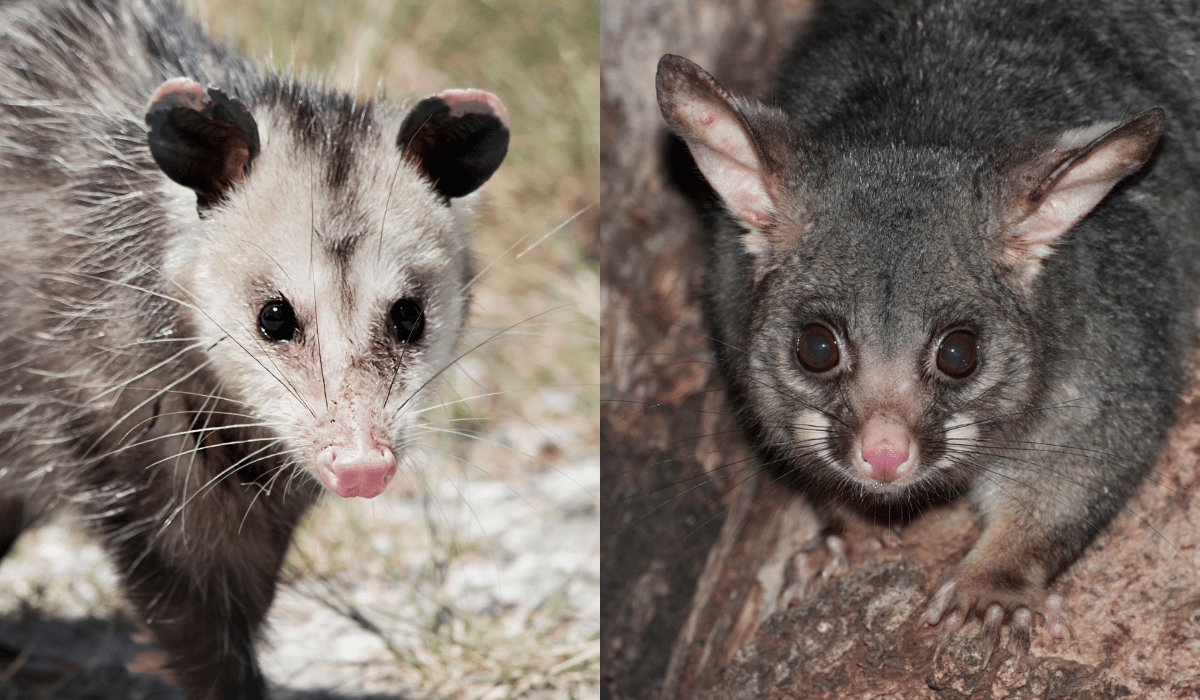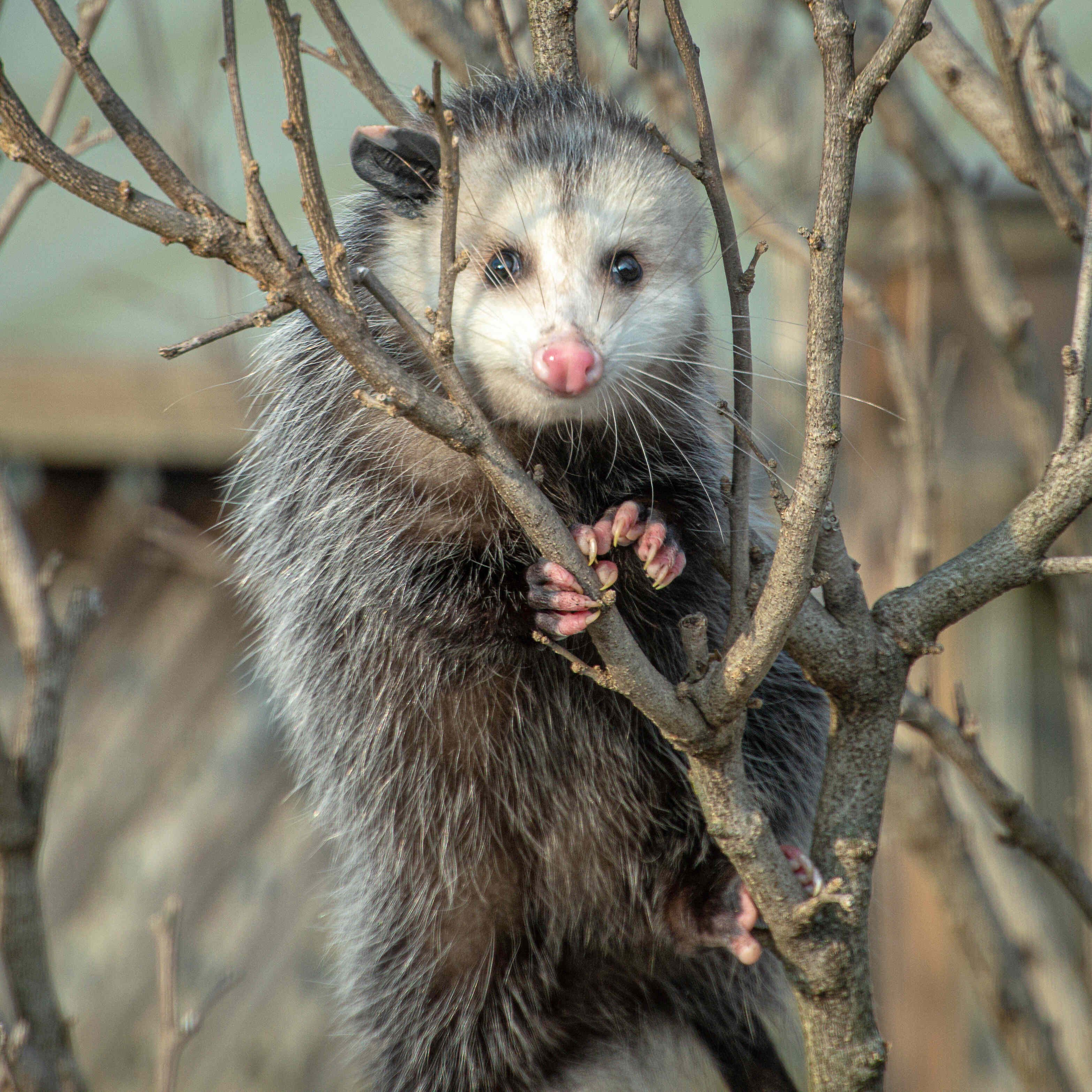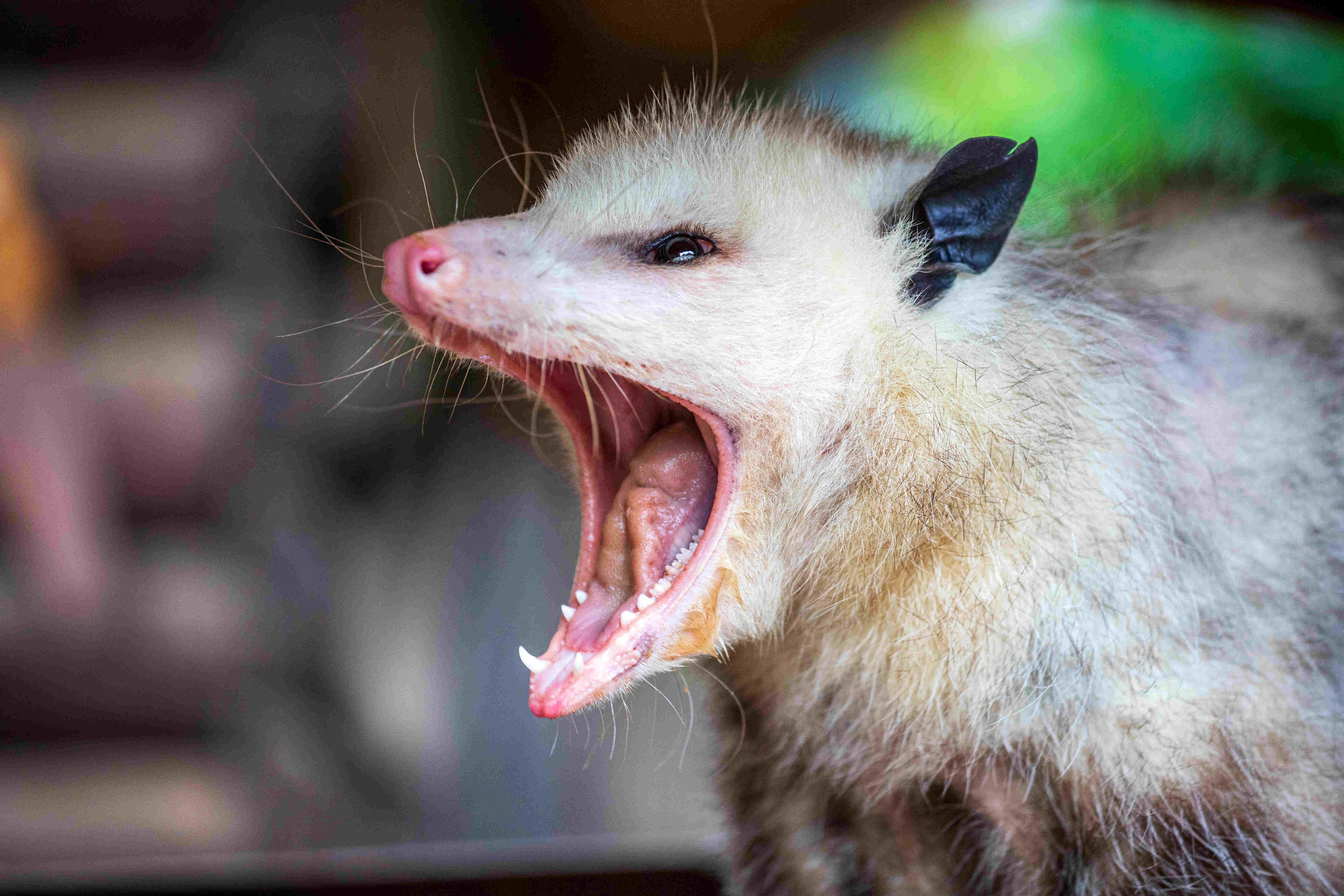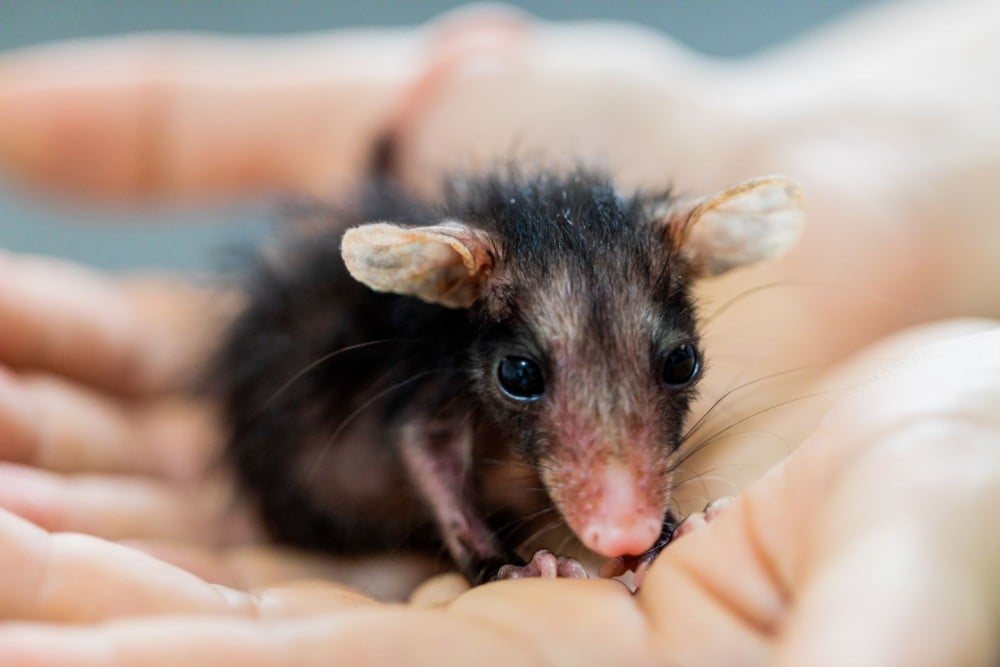
Opossums are some of the most misunderstood animals in the United States. Not necessarily considered “cute and cuddly” by most, these animals are unbelievably important to our ecosystems.
Opossums are some of the most misunderstood animals in the United States. While many find their appearance alarming and wonder whether opossums are dangerous, these animals are actually unbelievably important to our ecosystems.
Here are 12 facts about these wonderful animals who deserve our protection.
1. Where do opossums live: Understanding opossums vs. possums
While they’re both marsupials, opossums live in North and South America. Possums, on the other hand, live in Australia and other countries. Both possum and opossum correctly refer to the Virginia opossum frequently seen in North America as the “o” tends to be silent in everyday speech.

An opossum (left) and a possum (right).
2. Can opossums get rabies? The truth about rabies resistance
While many wonder whether opossums can get rabies, their body temperature is too low for the virus to survive like it does in other mammals, such as raccoons and bats. If you see an opossum in defense mode, such as hissing, drooling, or swaying, don’t assume it’s rabid. These are bluff behaviors used to outsmart potential predators.
3. What do opossums eat? They love eating ticks!
What opossums eat is quite impressive—they eat more than 90 percent of the ticks they encounter, according to the National Park Service. Some scientists, including Rick Ostfeld from the Cary Institute of Ecosystem Studies, note that they can kill up to 95 percent of ticks that feed on them and eat more than 5,000 ticks in a single season! If you live in an area with ticks—or mammals who might carry ticks—that potentially spread Lyme disease, you want opossums around.
By the way, they also eat cockroaches, crickets, beetles, mice, and rats. We bet those NYC opossums are thriving!

4. They’re incredibly clean animals
Like the cats you may share your homes with, opossums constantly self-groom with their tongues and paws. Since they don’t have sweat glands, opossums also groom themselves to cool down in hot weather. It’s probably the cutest thing you’ve ever seen.
5. Opossums have a resistance to snake venom
Part of an opossum’s diet includes snakes, causing them to develop a resistance to snake venom. Unfortunately, this has led to scientific testing in order to isolate the component responsible for this adaptation.
6. Opossums are used in medical research
In addition to being tested on for snake venom research, opossums (usually South American gray short-tailed opossums) are tragically used in medical research in a variety of areas such as neuroscience, tumor biology, fertility, development, contraception, and infertility treatment. In these medical facilities, they’re kept in small rodent cages and undergo grueling tests of which many do not survive—and if they do, they’re killed once the study or research is completed.
7. Where do opossums live in the Americas?
Opossums originated in South America and spread to North America when the continents conjoined. While a total of 103 species have been recorded throughout the Americas, these species are not found in any other region on Earth. In fact, Virginia opossums are North America’s only marsupial!

8. Opossums have 50 teeth!
This is more than any North American land mammal!
9. Are opossums marsupials? Their relation to kangaroos
Like kangaroos and koalas, opossums are marsupials and carry their young in their pouch, with opossum babies staying in their mother’s pouch for up to three months. According to fossil evidence, the split between the ancestors of opossums and other marsupials occurred at least 65 million years ago.
10. Opossum lifespan: One to two years
The typical opossum lifespan is about 1-2 years in the wild due to many dangers in their environments, such as predators and human conflicts. Heartbreakingly, if you see an opossum hit by a car on the side of the road, there is a chance that baby opossums are still alive in their mother’s pouch. Please check quickly if you’re able to and can do it safely. If babies are found, you can bring them to a local rehabilitator who specializes in opossums.
11. The name “opossum” is derived from the Algonquian language
Algonquians are Indigenous people who now live in Eastern Canada, originally residing in Quebec, Ontario, Upper Michigan, and Wisconsin. “Opossum” is derived from the Algonquin word “apasum,” which means white animal.
12. Are opossums dangerous? How to safely help these animals
The Opossums Society of the United States is a great resource for how you can help opossums have an easier life in a society that does not consider them. Find great information on how to protect opossums from road accidents, poison, pets (like dogs and cats), swimming pools, and other hazards.
Meet Tom

A baby opossum named Tom was rescued by our disaster response team deployed to Rio Branco. Nearly bald when found, Tom was no bigger than a child’s hand. Thanks to World Animal Protection supporters, we were able to deliver medicine to CETAS, where wild animals were brought after being injured in the Brazil fires, where he received medical treatment, food, water, and constant care.
Take action for opossums and other wild animals
Want to do more to protect wild animals? Join our community today and receive the latest news, petitions, appeals, and campaign successes from World Animal Protection!